Not long ago, field service management (FSM) software was something extra, helpful if you had it, but plenty of companies still managed without. These days it’s hard to imagine running a crew that way. Paper schedules get lost, spreadsheets fall out of date, and somebody always ends up double-booking a job. FSM tools solve that by pulling everything into one place: dispatch, work orders, invoices, even quick updates for the customer. The truth is, when it’s set up properly it doesn’t just make life easier, it saves hours, cuts down on mistakes, and lets your team focus on the work instead of chasing paperwork.
That breakdown is especially common for companies still running legacy ERP platforms like Dynamics GP, where field service functionality hasn’t kept pace with modern, mobile-first service operations.
Of course, not every platform is built the same way. Some tools are stripped down and simple, made for small service crews who just need to keep jobs moving. Others are geared toward big operations with hundreds of technicians in the field every day.
To make the search easier, we’ve pulled together a list of the 10 best field service management software platforms in 2026—from well-known names like ServiceTitan to ERP-powered options like Microsoft Dynamics 365 Business Central with ExpandIT.

What is Field Service Management (FSM) Software?
At its core, FSM software is there to keep your field work organized. It takes the place of clipboards, whiteboards, and those messy Excel files by giving office staff, dispatchers, and technicians a connected system they can all use in real time.
The basics usually include things like:
- Scheduling and dispatching jobs
- Tracking work orders
- Creating invoices and taking payments
- Keeping customers updated with reminders or portals
- Mobile access so techs can log details in the field
Put simply, FSM software is about reducing the busywork. Less chasing paperwork, fewer missed appointments, and more time spent actually serving customers.
FSM vs ERP: What’s the Difference?
Here’s where it gets interesting. FSM software is built to run your field operations. An ERP (Enterprise Resource Planning system), on the other hand, runs the back office such as finance, accounting, payroll, inventory, HR, and supply chain.
- Think of it like this:
- FSM is the toolbox for your technicians.
- ERP is the engine room that keeps the business side running.
When You’d Use One vs The Other
FSM on its own makes sense if:
- You’re a small or mid-sized contractor (HVAC, plumbing, electrical, landscaping, pest control).
- Your main headaches are scheduling, invoicing, and keeping customers in the loop.
- You’re fine running accounting in QuickBooks or something similar.
ERP on its own works best if:
- You don’t actually send techs into the field, but you need a strong handle on finances, purchasing, or production.
- You’re running manufacturing, distribution, or a back-office-heavy company.
You’ll want both when:
- You’re a medium to large service company and field work ties directly into your financials.
- Technicians are generating costs, using inventory, and creating revenue on the job, and you need that synced instantly with accounting, payroll, and reporting.
- That’s where Business Central with ExpandIT comes in: it gives you the full ERP backbone plus FSM scheduling and mobile tools, all in one connected system.

The 10 Best Field Service Management Software in 2026
There’s no shortage of software options out there for contractors and service companies. Some are designed for small crews that just need help keeping jobs on track, while others are built to handle the complexity of managing hundreds of technicians.
To give you a clear picture, here’s our breakdown of the 10 best field service management software platforms in 2026 — including well-known names like ServiceTitan, easy-to-use options like Jobber, and enterprise-ready solutions like Business Central with ExpandIT.
| Software | Category | ERP/Accounting Integrations | Best For |
|---|---|---|---|
| ExpandIT | FSM (ERP-integrated) | Microsoft Dynamics 365 Business Central | Medium–large service companies needing ERP + FSM |
| ServiceTitan | FSM | QuickBooks, Sage Intacct | HVAC, plumbing, electrical contractors |
| Salesforce Field Service | FSM (ERP-integrated) | SAP, Oracle, Microsoft Dynamics, NetSuite (via Salesforce ecosystem) | Large enterprises using Salesforce CRM |
| Jobber | FSM | QuickBooks, Xero | Small service teams (HVAC, landscaping, cleaning) |
| Housecall Pro | FSM | QuickBooks | Small contractors needing ease of use |
| Simpro | FSM (ops depth) | QuickBooks, Xero, MYOB, Sage | Trade contractors needing project/job costing |
| ServiceMax | FSM (enterprise) | SAP, Oracle, Salesforce | Equipment-centric industries, OEMs |
| Praxedo | FSM | SAP, Microsoft Dynamics, Sage (via APIs/connectors) | Flexible, configurable workflows |
| Workiz | FSM | QuickBooks | Small service shops (locksmiths, junk removal) |
| Zuper | FSM | QuickBooks, Zoho Books, Oracle NetSuite | Mid-sized companies needing automation |

1. ExpandIT (Best ERP-Integrated FSM)
ExpandIT isn’t a standalone ERP, it’s a field service platform that extends Microsoft Dynamics 365 Business Central. That means you get dispatching, scheduling, and mobile apps for technicians, fully connected to your ERP data (finance, supply chain, and reporting).
To learn more, read our full guide on service management in Business Central.
- Category: FSM (integrated with ERP)
- Integrations: Native with Microsoft Dynamics 365 Business Central
- Best For: Medium to large service companies that want FSM tied directly into ERP
- Key Features: Drag-and-drop scheduling, mobile technician app, work order management, ERP integration
- Pros: Scales easily, combines ERP + FSM in one system, strong Microsoft ecosystem
- Cons: Higher upfront cost, requires a trusted implementation partner
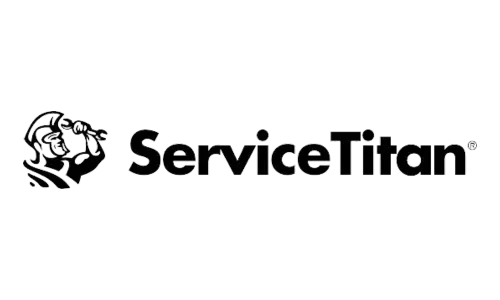
2. ServiceTitan (Best All-Around for Contractors)
ServiceTitan is one of the most complete FSM platforms for contractors. It handles nearly everything on the field side, from scheduling to payments to marketing. It’s not an ERP, but it does integrate with accounting tools. Read our comprehensive guide on the best alternatives to ServiceTitan.
- Category: FSM
- Integrations: QuickBooks, Intacct, Sage Intacct, and various marketing/payment tools
- Best For: HVAC, plumbing, and electrical contractors
- Key Features: Advanced scheduling, customer management, marketing tools, mobile invoicing
- Pros: Comprehensive feature set, trusted in the industry, strong reporting
- Cons: Expensive ($250–$300 per user/month), heavy for small crews

3. Salesforce Field Service (Best for Enterprise CRM Users)
Salesforce Field Service sits inside the Salesforce platform. If a company is already running Salesforce CRM, it’s usually the obvious add-on. The software is built around field service and customer management. It isn’t a full ERP. Still, Salesforce has a big marketplace of connectors, so it can link out to larger systems like SAP, Oracle, or Microsoft Dynamics when needed.
- Category: FSM (CRM-integrated)
- Integrations: Works with SAP, Oracle, Microsoft Dynamics, NetSuite, and more via Salesforce integrations
- Best For: Large enterprises already using Salesforce CRM
- Key Features: AI-driven scheduling, resource optimization, mobile field apps
- Pros: Enterprise-grade, global scalability, advanced analytics
- Cons: Expensive, requires Salesforce expertise to implement

4. Jobber (Best for Small Service Teams)
Jobber is a pure FSM solution designed for small businesses. It doesn’t replace ERP but integrates with accounting tools like QuickBooks and Xero to keep finances aligned.
- Category: FSM
- Integrations: QuickBooks, Xero, Stripe, Zapier
- Best For: Small service businesses (landscaping, HVAC, cleaning, plumbing)
- Key Features: Scheduling, invoicing, payments, client communication
- Pros: Affordable, transparent pricing, easy onboarding
- Cons: Limited scalability, basic reporting
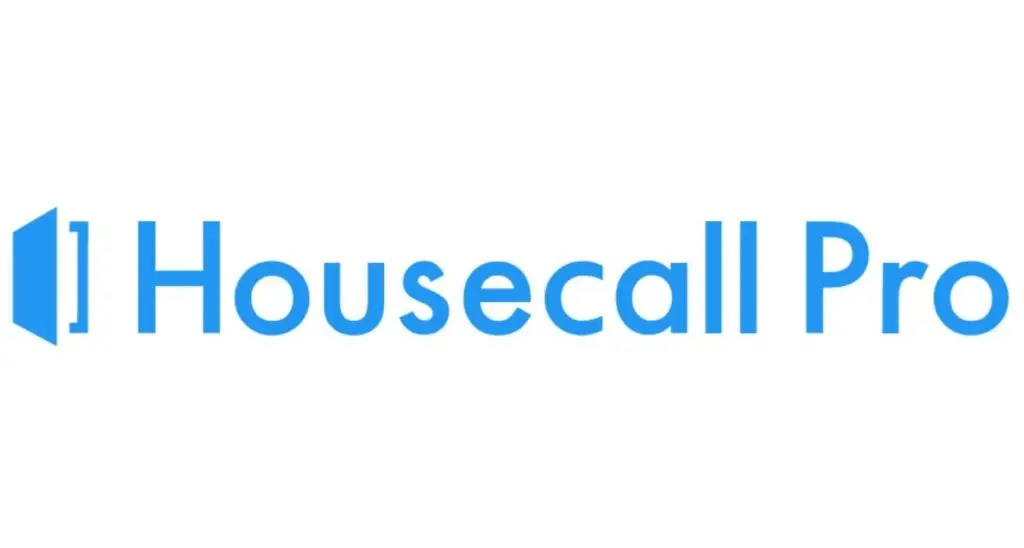
5. Housecall Pro (Best for Ease of Use)
Housecall Pro is another FSM-only platform aimed at small businesses. It’s known for ease of use, though it doesn’t include ERP functions. It integrates with QuickBooks for accounting.
- Category: FSM
- Integrations: QuickBooks, Google Calendar, Zapier, payment gateways
- Best For: Small contractors that want a simple, user-friendly solution
- Key Features: Drag-and-drop scheduling, customer portal, text reminders, payments
- Pros: Clean mobile interface, quick setup, great for small teams
- Cons: Limited enterprise-level features, support can be hit-or-miss

6. Simpro (Best for Project & Job Management)
Simpro is a field service + project management platform. It isn’t a full ERP, but it covers more operational depth than lighter FSM tools, especially around job costing and project tracking.
- Category: FSM (with strong operational depth)
- Integrations: QuickBooks, Xero, MYOB, Sage, Salesforce
- Best For: Trade contractors needing project/job management
- Key Features: Project costing, quoting, scheduling, inventory tracking
- Pros: Built for trades, solid financial and job costing tools
- Cons: Steeper learning curve, UI feels older
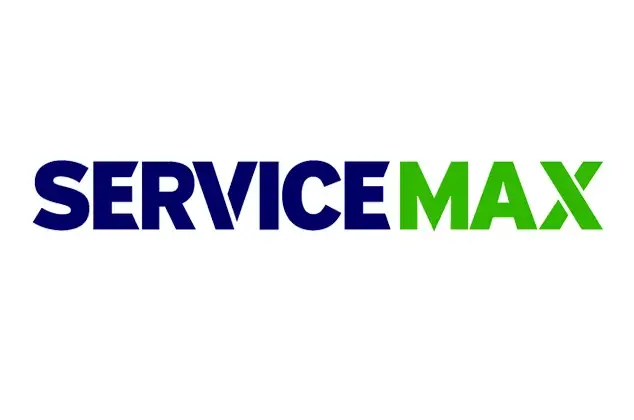
7. ServiceMax (Best for Asset-Heavy Service)
ServiceMax focuses on industries with heavy equipment service needs. It’s a full FSM platform, often used alongside enterprise ERPs.
- Category: FSM (often paired with ERP)
- Integrations: Works with SAP, Oracle, and Salesforce
- Best For: Industrial equipment, OEMs, large-scale service operations
- Key Features: Asset management, preventive maintenance, parts tracking
- Pros: Enterprise-grade asset focus, strong mobile apps
- Cons: Expensive, best for very large organizations

8. Praxedo (Best for Configurable Workflows)
Praxedo is a cloud FSM platform known for its configurability. It’s not an ERP but integrates with them through APIs. It’s especially strong in Europe and is growing globally.
- Category: FSM
- Integrations: Works with major ERPs like SAP, Microsoft Dynamics, Sage (via connectors/APIs)
- Best For: Companies needing flexible workflows tailored to operations
- Key Features: Scheduling, reporting, customizable workflows
- Pros: Flexible, scalable, mobile-friendly
- Cons: Less recognition in North America, setup can take time
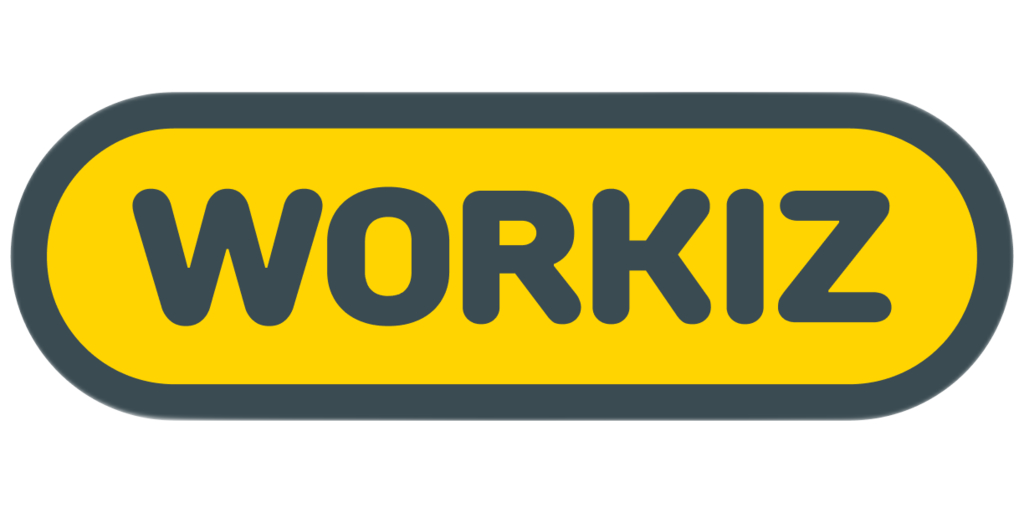
9. Workiz (Best for Small Businesses Needing Simplicity)
Workiz is lightweight FSM software designed for small field service businesses. It’s not an ERP, but it integrates with QuickBooks for accounting.
- Category: FSM
- Integrations: QuickBooks, Stripe, Google Calendar, Zapier
- Best For: Locksmiths, junk removal, small home service contractors
- Key Features: Scheduling, invoicing, payments, customer management
- Pros: Easy to use, affordable, great reviews from small shops
- Cons: Limited scalability, fewer advanced features
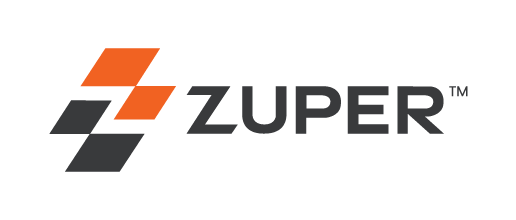
10. Zuper (Best for Automation and Tracking)
Zuper is a modern FSM platform with strong automation and workforce tracking. It doesn’t replace ERP but offers integrations with major systems.
- Category: FSM
- Integrations: QuickBooks, Salesforce, Zoho, Oracle NetSuite
- Best For: Mid-sized contractors focused on automation and visibility
- Key Features: Real-time tracking, scheduling, mobile apps, reporting
- Pros: Automation features, strong workforce visibility
- Cons: Newer to the market, smaller ecosystem of integrations
How to Choose the Right Field Service Management Software
The “right” system depends less on features and more on how big your team is right now. And where you think you’ll be a couple years down the road.
Small teams (1–10 employees): If you’re only running a few trucks, your main headache is usually keeping jobs organized and getting paid on time. Something simple like Jobber or Housecall Pro usually covers it. They’re cheap, quick to set up, and your techs won’t need much training.
Mid-sized contractors (10–30 employees): Once you start adding more people, the cracks show up. Maybe inventory is slipping through the cracks, or you can’t get a clear handle on job costs. That’s when you’ll want more muscle. ServiceTitan, Simpro, FieldPulse, and Business Central field service with ExpandIT bring those extra tools and give you a little room to grow.
Bigger companies (30+ employees): By this point, the smaller tools can feel like they’re holding you back. You need visibility into money, supply chain, and operations, not just scheduling. This is where Salesforce Field Service, ServiceMax, or Business Central with ExpandIT make the most sense. They connect what happens in the field to the rest of the business so you’ve actually got the full picture.
Frequently Asked Questions
What’s the best alternative to ServiceTitan?
It really depends on your company. If you’re a small shop, Jobber or Housecall Pro will probably feel like the best fit. They’re cheaper, easier to use, and do the basics really well. For bigger companies, Business Central with ExpandIT is worth a look. It’s more than just scheduling jobs — it ties field work back into your finances and operations.
Which FSM tools work with QuickBooks?
Quite a few. ServiceTitan, Jobber, Housecall Pro, Simpro, Workiz, and Zuper all integrate well with QuickBooks. That’s one reason they’re popular with smaller service contractors.
What’s the difference between FSM and ERP?
Think of FSM as the day-to-day field tools: dispatching, scheduling, invoices, customer updates. ERP is the back office: payroll, supply chain, accounting, HR. In practice, small teams usually just need FSM. Bigger companies often find they need both — and that’s where something like ExpandIT with Business Central comes in.
Is there FSM software built for larger companies?
Yes. Salesforce Field Service and ServiceMax are aimed at enterprise-level companies. Business Central with ExpandIT is also built for larger service contractors that don’t want to outgrow their software in a few years.
Final Thoughts
There isn’t one “best” field service management platform. What works depends a lot on your trade, your crew size, and how much you plan to grow. Smaller companies usually lean toward Jobber or Housecall Pro. Mid-sized contractors often look at ServiceTitan or Simpro. Once you get bigger, you’ll need heavier systems like Salesforce Field Service, ServiceMax, or Business Central with ExpandIT.
The main thing: pick software that matches where you’re headed, not just where you are today.
If your business is ready to connect field service with ERP-level visibility, Service Dynamics can help you implement Business Central + ExpandIT. Contact our experts today.